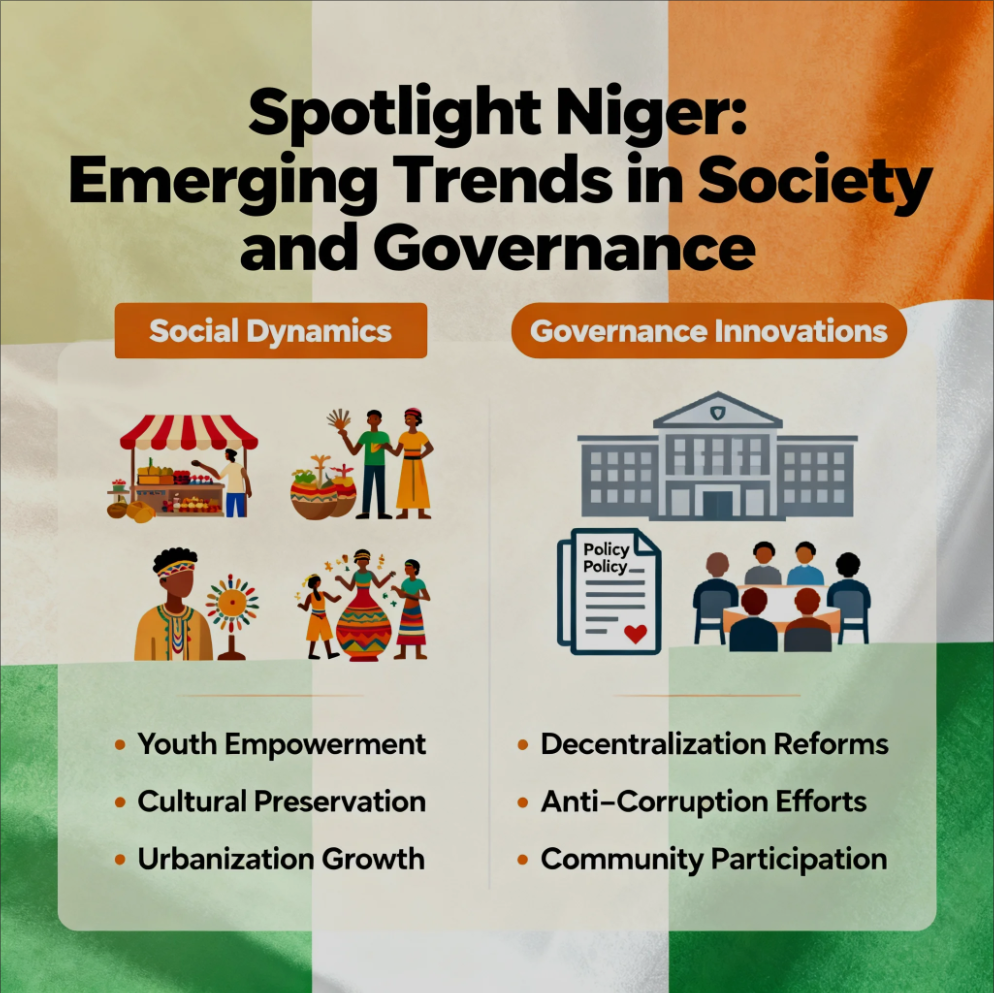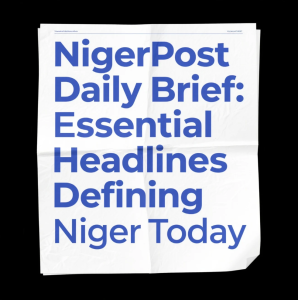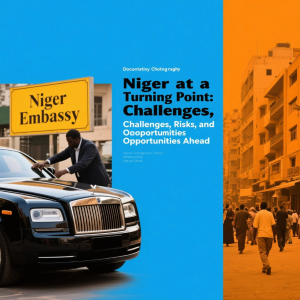Niger is entering a new era of transformation — one shaped by youth innovation, community resilience, and evolving governance structures.
Once known primarily for its vast landscapes and challenges, Niger today represents a society in motion, balancing tradition with modernization.
🌍 1. A Generation Ready to Lead
Over 60% of Niger’s population is under 25, making it one of the youngest nations in the world.
This youth wave is not just demographic — it’s cultural and political.
Across Niamey and regional towns, young professionals, activists, and entrepreneurs are shaping conversations around transparency, education, and economic reform.
Digital platforms and social media movements have become powerful tools for civic engagement, allowing younger citizens to influence governance and demand accountability.
🏛️ 2. Governance Reforms and Civic Transparency
Recent years have seen an increase in public sector modernization efforts, aiming to improve transparency and reduce administrative inefficiency.
Local governments are experimenting with digital record systems and community-led policy consultations, promoting participatory decision-making.
While challenges remain — such as bureaucratic bottlenecks and resource limitations — the overall shift signals a commitment to more inclusive governance.
📚 3. Education and Empowerment
Education continues to play a pivotal role in Niger’s development.
The government, supported by international partners, has invested in literacy programs, vocational training, and digital education platforms.
NGOs and local startups are also stepping in to help bridge gaps, particularly for young women and rural communities.
By connecting learning with real-world skills, these initiatives are laying the foundation for a more skilled, self-reliant generation.
🤝 4. Society at the Crossroads of Tradition and Change
Niger’s social fabric is defined by a balance between deep-rooted cultural traditions and new global influences.
While rural communities maintain strong local customs, urban centers like Niamey are seeing shifts toward more diverse lifestyles, gender inclusion, and creative expression.
Music, art, and fashion are becoming tools of identity and social commentary — offering fresh ways to discuss governance and the nation’s direction.
⚙️ 5. Challenges Ahead — and the Road Forward
Despite visible progress, Niger faces ongoing challenges:
economic inequality, climate pressures, and security concerns.
However, the country’s emerging civil society, strengthened governance institutions, and youthful drive provide a strong base for long-term resilience.
Observers note that true progress in Niger lies in collaboration — between citizens, government, and global partners — to ensure reforms turn into lasting change.
🌅 Conclusion: A Nation Redefining Its Future
Niger’s story is evolving — not defined by past limitations, but by the vision of a generation building a transparent, inclusive, and dynamic society.
From governance to grassroots innovation, the momentum of change is clear:
Niger is stepping into the future with optimism, courage, and collective purpose.




